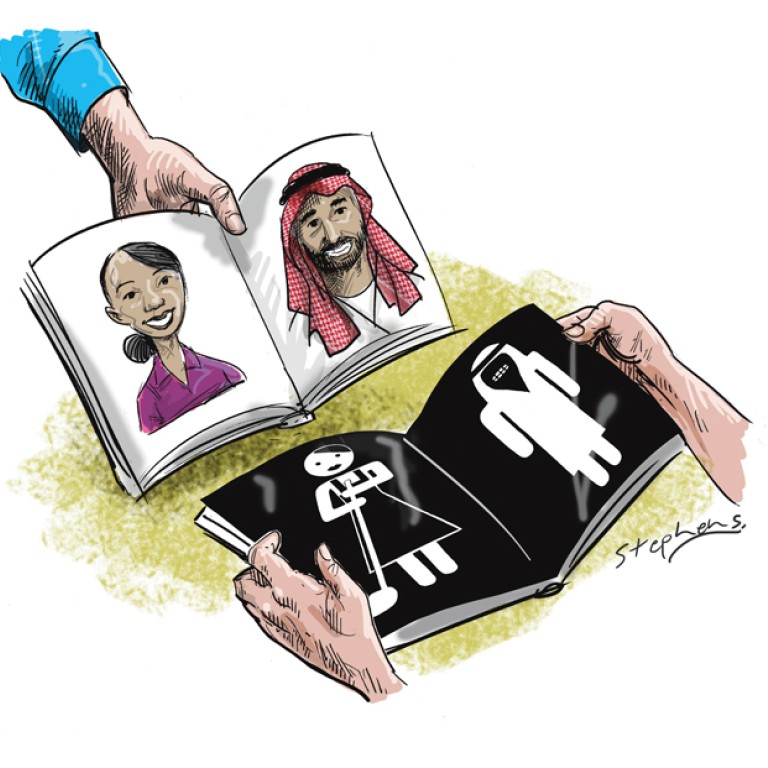
No place in liberal studies for ethnic stereotypes and overgeneralisations
Liz Jackson says Hong Kong's approach to liberal studies is falling short of its aim to embrace and understand the full range of perspectives in society, including those of minority groups
The need for multiculturalism, which can be defined as fair approaches to managing diversity and cultural understanding, has become urgent in Hong Kong. Many feel that schools should do a better job of educating students in light of challenges some face due to barriers of language, race/ethnicity, and class.
On the other hand, what students are learning in schools, about "racial harmony" and other forms of social diversity, is also being scrutinised. Recent news stories have exposed how primary school textbooks reinforce cultural stereotypes that Filipinos in Hong Kong are all domestic helpers.
Racial and ethnic stereotypes also predominate in liberal studies textbooks. Describing ethnic minorities mostly as "grass roots" and underprivileged in Hong Kong, such depictions do a poor job of meeting the subject's multicultural aims: of enhancing understanding of society, respect for diversity, and ability to handle conflicting values and develop positive attitudes to be informed, responsible citizens.
Of course, there are "grass roots" ethnic minorities in Hong Kong. There are Filipinos who are domestic helpers here. But does it enhance student understanding for textbooks to send these messages, as they do, in broad sweeping statements?
Textbooks for subjects like liberal studies tend to echo what students and society already know about social issues and diversity, which mostly comes from the media. In the textbooks, as in the news, Muslims fare very badly. They are featured almost exclusively as bad guys: cartoonish terrorists, fundamentalists and sexists, ill-equipped to live in the modern liberal world.
News media is more justified in providing this perspective. News has the responsibility to share "bad" stories. We expect to be informed when terrorism happens. The news rarely featured stories about the 99 per cent of Muslims who are ordinary rather than extraordinary, going about their daily, mundane lives.
Schools have a different role. Teachers must share with their students their observations of both the ordinary and extraordinary of our world. For education to only focus on the newsworthy 1 per cent does an injustice to the 99 per cent, making the 99 per cent seem invisible, unworthy of consideration and unimportant. In the case of Filipinos in Hong Kong, schools have a responsibility to enhance understanding, not just echo news and television. In science, this would be like teaching only the physics and biology relevant to the latest Star Wars film rather than explaining scientific principles completely, as observed in reality.
People sometimes assume that multiculturalism is beneficial primarily for minorities. After all, multiculturalism teachings tend to focus on the challenges minorities face, when they are misunderstood or treated unequally. Yet, as the aims of liberal studies make clear, multiculturalism serves all members of society. In a democratic society, the stakes of poor education of all students, minority and mainstream, are high. To effectively make decisions in a democratic society, people need to understand other people and groups, who will be affected by their decisions.
They need to be able to meet and discuss controversial issues with these diverse others without prejudice or fear. Without this understanding and these abilities, people cannot act in their own best interests. Education has a special and noble duty here.
Unfortunately, liberal studies teachers face serious challenges conveying multiculturalism and cultural understanding for social democracy. First, they are encouraged to focus on news media, which rarely provides a total picture when it comes to minorities, in any society.
Second, liberal studies textbooks lack vital regulation and oversight, to ensure that subjective opinions (which can result from extreme watering down of social science theories) are not emphasised over fuller pictures. Such regulation is a standard process for other required subjects in Hong Kong education, and is common for social science texts in Western countries. It can include review by members of multicultural groups in society, regarding whether coverage is balanced and helpful to the goal of enhancing understanding.
The aim of such oversight is not to ensure that only nice things are said about minorities; rather, it is to prevent the likely unintentional, yet inaccurate and overly negative, depictions of minorities we see in the texts today. As the Education Bureau website still features old curriculum guides for religious studies using the term "Islamist" in place of "Muslim" (these terms have distinct meanings), there can be no doubt that it's time to include all stakeholders meaningfully in the educational conversation in Hong Kong.
Groups and individuals must be able to represent themselves, their values and cultures in their own terms in order for democracy to flourish. That liberal studies textbook writers have instead negatively labelled minorities through vast overgeneralisations, related to religion, or what hemisphere they live in, reflects a lack of commitment to such democratic processes and to the subject's mission of cultural understanding.
Minority voices must be included, when it comes to their lives, goals and values in Hong Kong, if majority and minority populations are to meet each other and participate in democratic dialogue without misunderstanding. Such democratic dialogue should also be embedded in curriculum and textbook development in Hong Kong, if we are all to learn from and live alongside our neighbours without undue disharmony and for mutual benefit in the future.

